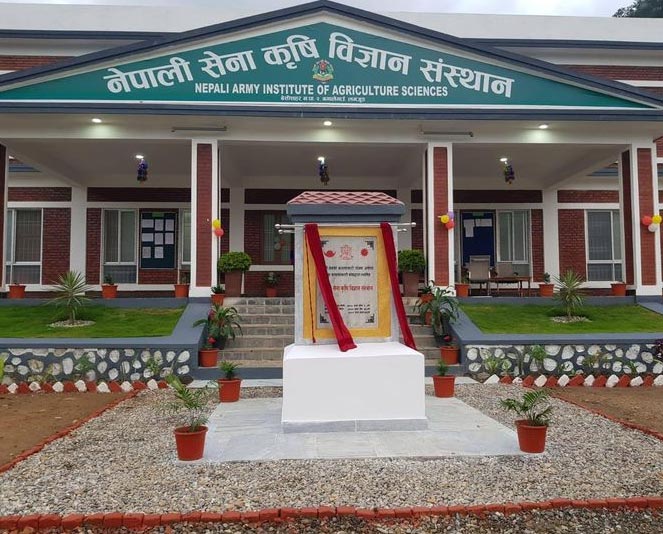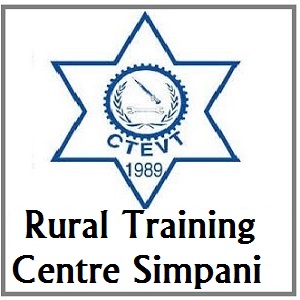Overview
Pre-Diploma in Livestock Production / Animal Health at the Nepali Army Institute of Agricultural Sciences
The Pre-Diploma in Livestock Production / Animal Health program at the Nepali Army Institute of Agricultural Sciences (NAIAS), Besisahar, Lamjung, is affiliated with the Council for Technical Education and Vocational Training (CTEVT). This course introduces students to fundamental animal science practices, strongly focusing on animal health care, livestock production, and basic veterinary practices. It is designed to develop skilled junior technicians who can contribute to rural animal husbandry and livestock development.
The program is grounded in hands-on learning using the institute’s functional livestock units, including poultry, goat, pig, cow, and wild boar farms. Students gain practical exposure from day one in a supportive academic setting that prioritizes job-readiness and agricultural relevance.

Curriculum Details
The course duration is 18 months, structured across theoretical modules and applied training. Key study areas include:
-
Introduction to Livestock Production
-
Animal Anatomy and Physiology
-
Livestock Feeding and Nutrition
-
Breeding and Reproductive Management
-
Animal Housing and Sanitation
-
Veterinary First Aid and Disease Control
-
Poultry, Goat, Cattle, and Pig Management
-
Dairy Science and Milk Handling
-
Pasture Management
-
Agricultural Extension and Communication
-
Record Keeping and Farm Management
-
On-the-Job Training (OJT)
Objectives
-
To develop competent junior animal health workers
-
To promote healthy, productive livestock systems
-
To support local veterinary services and animal welfare
-
To contribute to income generation and food security in rural communities
Scope
Graduates have broad opportunities in:
-
Livestock farms and veterinary clinics
-
Local government agriculture and livestock programs
-
NGOs working in rural development
-
Self-employment in animal rearing or small farm enterprises
It also prepares students for further education in veterinary and animal science disciplines.
Learning Outcomes
By the end of the course, students will:
-
Understand the basics of animal anatomy, physiology, and behavior
-
Perform routine animal health checks and administer first aid
-
Identify and respond to common livestock diseases
-
Manage animal feed, breeding, and housing practices
-
Assist veterinarians in basic clinical procedures
Skill Development Modules
Practical training modules include:
-
Livestock weight estimation and dosing
-
Preparation and administration of vaccines and medications
-
Safe handling and restraint of animals
-
Feed formulation and ration planning
-
Hygiene and sanitation in animal sheds
-
Dairy equipment handling and milk hygiene
Each module includes assessments and real-time demonstrations on the institute’s farms.
Teaching Methodology
The program applies a practical and interactive teaching approach:
-
Classroom lectures and illustrated manuals
-
Animal farm demonstrations and supervised practice
-
Guest sessions by veterinary professionals
-
Field exposure to local livestock farms and animal health centers
-
Group projects and peer learning
-
Final semester On-the-Job Training (OJT)
Students receive personalized guidance throughout the training.
Admission Requirements
To apply, candidates must:
-
Have passed Grade 10 (SEE or equivalent)
-
Fulfill the minimum academic criteria as per CTEVT
-
Pass the entrance examination conducted by NAIAS or CTEVT
Preference may be extended to children of army personnel, but all eligible applicants are encouraged.
Career Opportunities
Graduates may pursue employment in:
-
Animal clinics and veterinary support roles
-
Community-based livestock development programs
-
Dairy or poultry farming units
-
Animal health and feed supply businesses
They can also establish their own livestock ventures in rural or semi-urban areas.
Scholarships and Financial Aid
NAIAS offers limited scholarships based on performance, economic need, and service background. Other options include:
-
Local education funds and subsidies
-
CTEVT scholarship programs
-
NGO and donor-supported agricultural education schemes
Why Choose This Course?
Students gain access to structured, farm-based learning supported by practical facilities and experienced faculty. This course is ideal for those aiming to build a future in livestock management, veterinary assistance, or community livestock services.
The curriculum is grounded in real farm work, helping students develop confidence, job skills, and a sense of purpose in agriculture-related employment.
Conclusion
The Pre-Diploma in Livestock Production / Animal Health at the Nepali Army Institute of Agricultural Sciences prepares students for entry-level animal health and livestock services roles. With its CTEVT affiliation, applied training model, and real farm experience, this course provides a valuable foundation for employment or further education in the agricultural sciences.


















